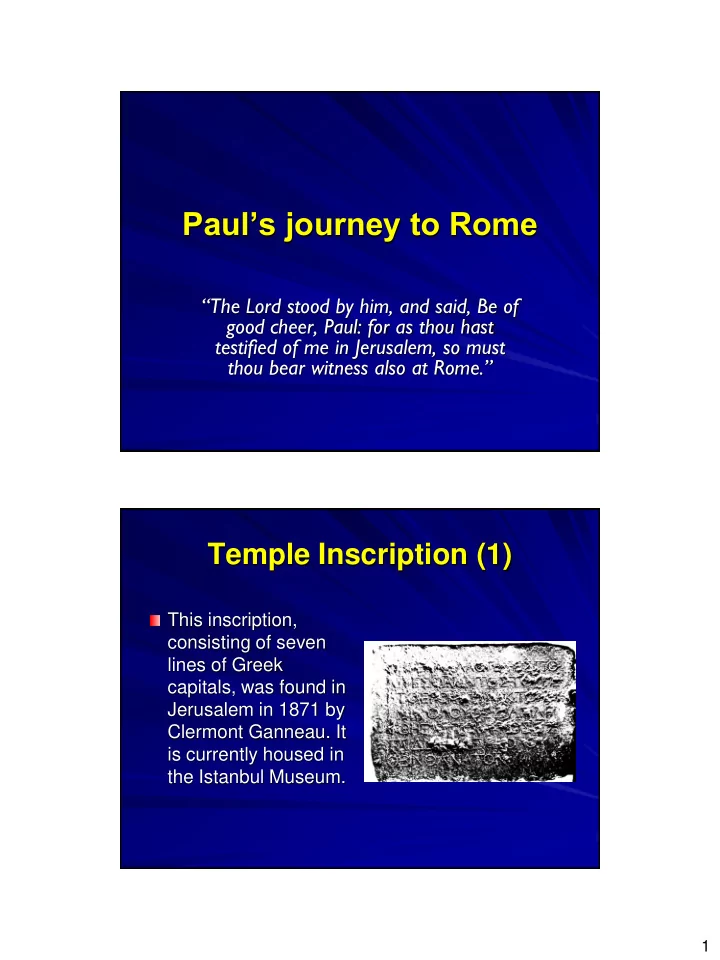

Paul’s journey to Rome “The Lord stood by him, and said, Be of good cheer, Paul: for as thou hast testified of me in Jerusalem, so must thou bear witness also at Rome.” Temple Inscription (1) This inscription, consisting of seven lines of Greek capitals, was found in Jerusalem in 1871 by Clermont Ganneau. It is currently housed in the Istanbul Museum. 1
Temple Inscription (2) The inscription gives No foreigner may the following warning: enter within the barricade which surrounds the temple and enclosure. Anyone who is caught doing so will have himself to blame for his ensuing death. The Temple & Antonia Fortress 2
A Roman Grain Ship Paul’s journey to Rome 3
The bay at Kali Lemenes, Crete – Fair Havens of Acts 27:8 Paul’s journey to Rome 4
“The island was called Malta” (Acts 28:1) Publius … received us” (Acts 28:7) “Now in the neighbourhood of that place were lands belonging to the chief man of the island, named Publius; who received us, and entertained us three days courteously” (RV). 5
Paul’s journey to Rome “And so we went toward Rome” (Acts 28:14): The Appian Way “When the brethren heard of us, they came to meet us as far as Appii forum, and The three taverns: whom when Paul saw, he thanked God, and took courage” (Acts 28:15). 6
The Appian Way “The captain of the guard” – Acts 28:16 (1) A letter from the Emperor Trajan to the Younger Pliny (the emperor’s representative in the province of Bithynia and Pontus, AD 111-113), suggests that prisoners from the provinces were delivered to the commander of the Praetorian Guard. Trajan writes: “As for the man who was banished for life by Julius Bassus, he had two years in which he could have asked for a re-trial if he thought his sentence was unjust, but, as he took no steps to do so, and remained in the province, he must be sent in chains to the officers in command of my imperial guards” – i.e. to await trial. This letter, albeit describing a case some 50 years after Paul’s arrival in Rome, seems to be referring to the same practice as that in Acts 28:16. 7
“The captain of the guard” – Acts 28:16 (2) Between AD 51 and 62, the Praetorian Guards were under the command of one man, Sextus Afranius Burrus. Together with Seneca, he had acted as tutor to Nero (emperor AD 54-68). In AD 62 he died. Before his time, and after it, there were two officers who filled this role, not one. Luke’s reference to “The captain of the guard”, suggests that this was the man to whom Paul was delivered. He is described by Tacitus (AD 56- 120) as “a distinguished soldier”, efficient, and with “seriousness of character” (see Tacitus, Annals ). It was he who allowed Paul his own lodging and the freedom to have visitors, preach and write. 8
Recommend
More recommend